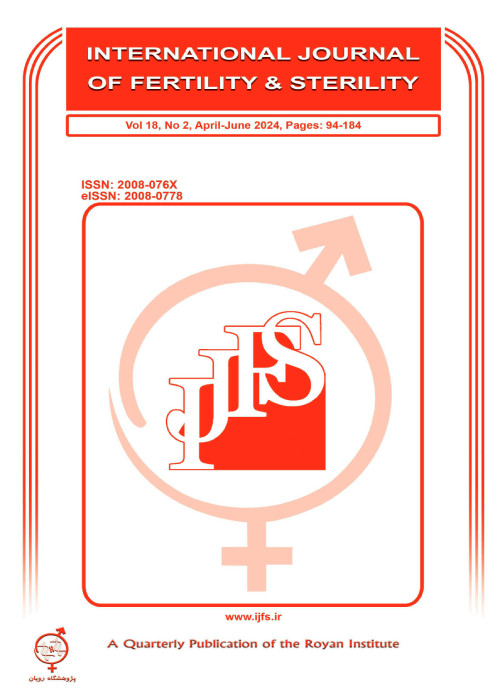Association between Maternal MTHFR Polymorphisms and Nonsyndromic Cleft Lip with or without Cleft Palate in Offspring, A Meta-Analysis Based on 15 Case-Control Studies
Author(s):
Xinjuan Pan , Ping Wang , Xinjuan Yin , Xiaozhuan Liu , Di Li , Xing Li , Yongchao Wang
Abstract:
Background
The methylenetetrahydrofolate reductase (MTHFR) is thought to be involved in the development of nonsyndromic cleft lip with or without cleft palate (NSCL/P). However, conflicting results have been obtained when evaluating the association between maternal MTHFR C677T and A1298C polymorphisms and the risk of NSCL/P. In light of this gap, a meta-analysis of all eligible case-control studies was conducted in the present study. Materials And Methods
A total of 15 case-control studies were ultimately identified after a comprehensive literature search and Hardy-Weinberg equilibrium (HWE) examination. Cochrane’s Q test and index of heterogeneity (I2) indicated no obvious heterogeneity among studies. Results
Fixed or random-effects models were used to calculate the pooled odds ratios (ORs). The results showed that the TT genotype in mothers increased the likelihood of having NSCL/P offspring 1.25 times (95% CI: 1.047-1.494) more than the CC homozygotes. Meanwhile, maternal TT genotype increased the risk of producing NSCL/P offspring in recessive model (OR=1.325, 95% CI: 1.124-1.562). However, the CT heterozygote and the CT+TT dominant models had no association with NSCL/P offspring compared with the CC wild-type homozygote model. Subgroup analyses based on ethnicity indicated that maternal TT genotype increased the likelihood of having NSCL/P offspring in Whites (OR=1.308, 95% CI: 1.059-1.617) and Asians (OR=1.726, 95% CI: 1.090-2.733) in recessive model. Also, subgroup analyses based on source of control showed that mothers with the 677TT genotype had a significantly increased susceptibility of having NSCL/P children in hospital based population (HB) when compared with CC homozygotes (OR=1.248, 95% CI: 1.024-1.520) and under the recessive model (OR=1.324, 95% CI: 1.104-1.588). Furthermore, maternal A1298C polymorphism had no significant association with producing NSCL/P offspring (dominant model OR=0.952, 95% CI: 0.816-1.111, recessive model OR=0.766, 95% CI: 0.567-1.036). Conclusion
MTHFR C677T polymorphism is associated with the risk of generating NSCL/P offspring, and being a 677TT homozygote is a risk factor. MTHFR A1298C polymorphism was not associated with generating NSCL/P offspring. However, further work should be performed to confirm these findings.Keywords:
Language:
English
Published:
International Journal Of Fertility and Sterility, Volume:8 Issue: 4, Jan-Mar 2015
Page:
463
magiran.com/p1362168
دانلود و مطالعه متن این مقاله با یکی از روشهای زیر امکان پذیر است:
اشتراک شخصی
با عضویت و پرداخت آنلاین حق اشتراک یکساله به مبلغ 1,390,000ريال میتوانید 70 عنوان مطلب دانلود کنید!
اشتراک سازمانی
به کتابخانه دانشگاه یا محل کار خود پیشنهاد کنید تا اشتراک سازمانی این پایگاه را برای دسترسی نامحدود همه کاربران به متن مطالب تهیه نمایند!
توجه!
- حق عضویت دریافتی صرف حمایت از نشریات عضو و نگهداری، تکمیل و توسعه مگیران میشود.
- پرداخت حق اشتراک و دانلود مقالات اجازه بازنشر آن در سایر رسانههای چاپی و دیجیتال را به کاربر نمیدهد.
دسترسی سراسری کاربران دانشگاه پیام نور!
اعضای هیئت علمی و دانشجویان دانشگاه پیام نور در سراسر کشور، در صورت ثبت نام با ایمیل دانشگاهی، تا پایان فروردین ماه 1403 به مقالات سایت دسترسی خواهند داشت!
In order to view content subscription is required
Personal subscription
Subscribe magiran.com for 70 € euros via PayPal and download 70 articles during a year.
Organization subscription
Please contact us to subscribe your university or library for unlimited access!


